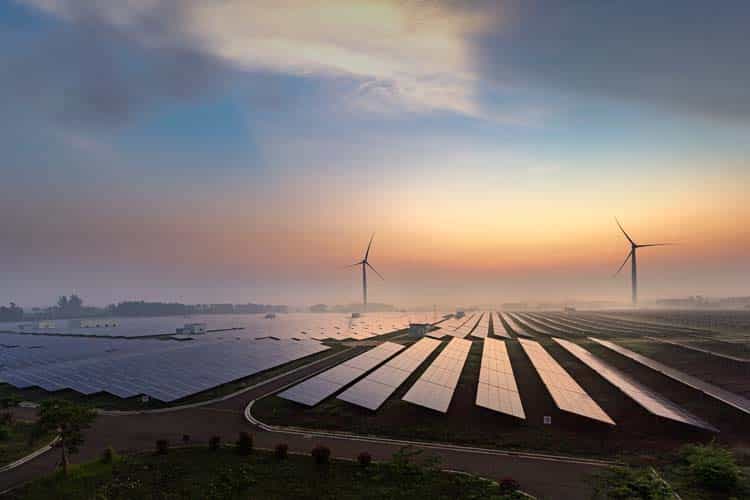Last Updated on 28/11/2023
Turkey has a great advantage for solar energy investment due to its geographical location,surpassing many other countries in this market. According to data from the Renewable Energy General Directorate and the State Meteorology Affairs General Directorate, Turkey enjoys an average annual sunshine duration of 2640 hours, which equals 7.2 hours per day. The moderate total radiation intensity is 1.311 kWh/m2 yearly (3.6 kWh/m2 daily). With the right investments in solar energy plants, Turkey could generate an average of 1.100 kWh per square meter. This positions Turkey as the second-best country in Europe for solar power investment potential, following Spain.
Importance of Solar Energy Investment in Turkey

Investing in solar energy in Turkey holds significant importance due to several factors that can positively impact the country’s economy, environment, and energy security. Here are some key points highlighting the importance of solar energy investment in Turkey:
Abundant Solar Potential Reducing Energy Dependence
Turkey boasts abundant sunlight throughout the year, especially in its southern regions. This makes it an ideal location for harnessing solar energy. The ample sunlight provides a consistent and reliable source of renewable energy, which can be harnessed through solar panels and photovoltaic systems.
Moreover, Turkey has historically relied heavily on imported energy sources, which can pose economic and security risks. Investing in solar energy can significantly reduce this dependency on foreign energy imports, enhancing energy security and reducing the vulnerability of the energy sector to geopolitical fluctuations and price volatility.
learn More About Natural gas in Turkey: A new energy center for European consumers
Environmental Benefits:

Solar energy is a clean, renewable energy source that produces electricity without emitting greenhouse gases or other pollutants. By investing in solar power, Turkey can reduce its carbon footprint, combat air pollution, and contribute to global efforts in combating climate change.
Economic Growth and Job Creation:
The development of the solar energy sector in Turkey has the potential to create new employment opportunities. It can lead to job creation across various stages, including manufacturing, installation, maintenance, and research and development, thereby boosting economic growth.
Read More About Lucrative Sectors to Invest in Turkey: A Comprehensive Guide
Diversification of Energy Mix and Government Incentives:
A various energy mix is crucial for a sustainable and stable energy supply. Incorporating solar energy alongside other renewable sources like wind and hydroelectric power helps diversify the energy portfolio. Moroever, it reduces reliance on a single energy source, and ensuring a more resilient and in-balance energy grid.
Furthermore, The Turkish government showed commitment to renewable energy with incentives, feed-in tariffs, and various support mechanisms to encourage investment in solar power. These measures include favorable regulatory frameworks and incentives for both residential and commercial solar installations.
Long-term Cost Savings:

While the initial investment in solar infrastructure may seem high, the long-term benefits are substantial. Solar energy systems have low operating costs and, once installed, can generate electricity for many years, offsetting or even eliminating electricity bills. This long-term cost-effectiveness makes it an attractive investment.
Besides, Solar energy can play a vital role in providing electricity to remote or rural areas where access to the conventional grid might be limited. Implementing solar power systems in these areas can help in providing electricity, improving living standards, and supporting local economic development.
Monthly average solar energy values in Turkey

The most effective months for generating solar energy in Turkey are June, July, and August. Conversely, the least productive months are November, December, and January. Regarding solar energy potential, the Southeastern Anatolia and Mediterranean Regions exhibit the highest capacity in Turkey. Additionally, the expansive flat lands in Central Anatolia present another area highly suitable for lucrative solar energy investments. Excluding the Black Sea Region, Turkey has the capability to generate 1.100 kWh per square meter from an average of 2640 hours of sunlight. Consequently, the total potential energy produced per year amounts to around 1.015 kW hours. Statistical data indicates that solar radiation in Turkey stands at 112.74 kcal/cm2 and 1311.00 kWh/m2 annually. In terms of solar radiation averages, an average sunshine duration of 7.2 hours per day allows for the production of 308.0 cal/cm2-day and 3.6 kWh/m2-day.
Lean More About Monthly average solar energy values in Turkey
Solar Energy in Turkey: A Major Potential Market

Solar energy investment in Turkey, despite possessing the second most significant potential market in Europe, trailing only Spain, has seen limited utilization thus far. The utilization has been restricted mainly to specific applications such as traffic signals, wireless base stations, and solar heat installations, primarily in the southern regions of the country. Notably, grid-type installations have not yet been implemented, with initial small-scale projects of less than 1 MW just commencing. The growth of unlicensed applications for solar power, however, is on the rise.
Nevertheless, there is a growing interest in the Turkish private sector, particularly in the production and installation of solar panels, thin film, and concentrated solar technologies. This interest has surged, especially following the amendment to the renewable energy law effective at the end of 2010. The amendment introduced supplementary feed-in tariff incentives for local manufacturing. Under Law No. 6094, a feed-in tariff of 13.3 US cents per kWh for electricity derived from solar power generation is stipulated, irrespective of the origin of the equipment.



